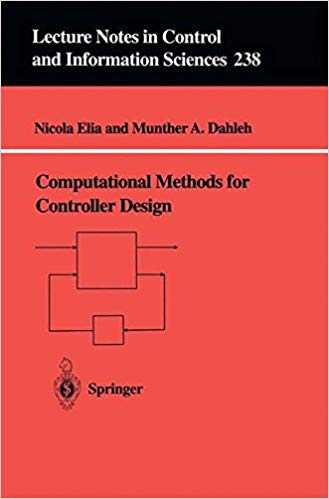
N. Elia, and M. A. Dahleh.
Lecture notes in Information Sciences Series, Springer Ver-Lag, 1998.
The monograph is concerned with computational methods for controller design that allow several typical performance specifications to be directly imposed on a system. The general approach proposed, is applicable to a large class of problems; it is based on posing multi-objective control problems as convex infinite dimensional optimization problems.
Particularly interesting and useful are the following methodological aspects of the approach proposed in the monograph. These are:
- A unified way to pose the problems as generalized linear programs.
- Duality theory results that characterize the duality relationship for the generalized linear programs arising from multi-objective control problems.
- A set of tools to analyse the convergence properties of the computational method based on the duality relationship.
- The complete analysis and extension of methods developed for the L1 problem, for several important multi-objective problems.
This book is primarily concerned with multi-objective control problems as convex optimizations on the space of the closed loop maps. However, the issue of deriving exact or approximate solutions is similar when the problems are posed as dynamic games in state space. Therefore the problem of finding the state feedback controller that minimizes the worst-case peak-to-peak amplification of the closed loop system, is considered in the last chapter.
The objective of this work is to propose generic computation methods that can be used to solve a wide range of multi-objective control problems. Infinite dimensional convex optimization problems are considered, giving the book a broader focus than other competitive titles in this field. This non-exclusive approach will have a wide appeal for scientists and graduate students. They will be able to determine and analyse readily implementable computational methods to derive exact or approximate solutions.
USPs: Generic computational methods are proposed – these can be used to solve a wide range of multi-objective control problems.A new computational method for the L1 problem is suggested, which is superior to existing approaches and is based on the solution of a mixed objective problem.The reader will greatly benefit from the comprehensive treatment of this topic.

